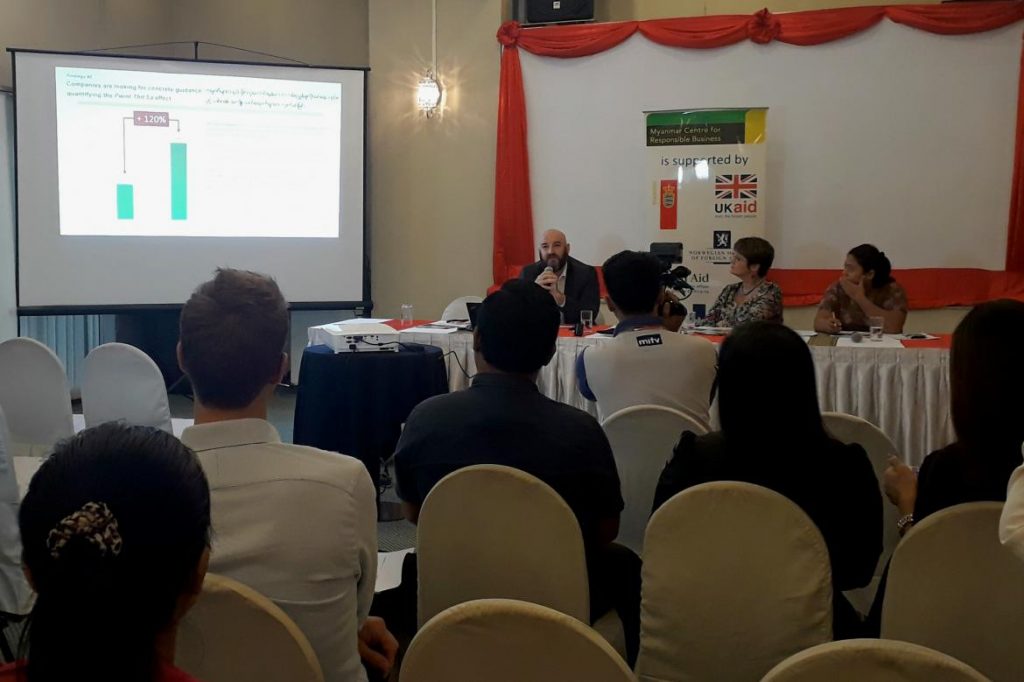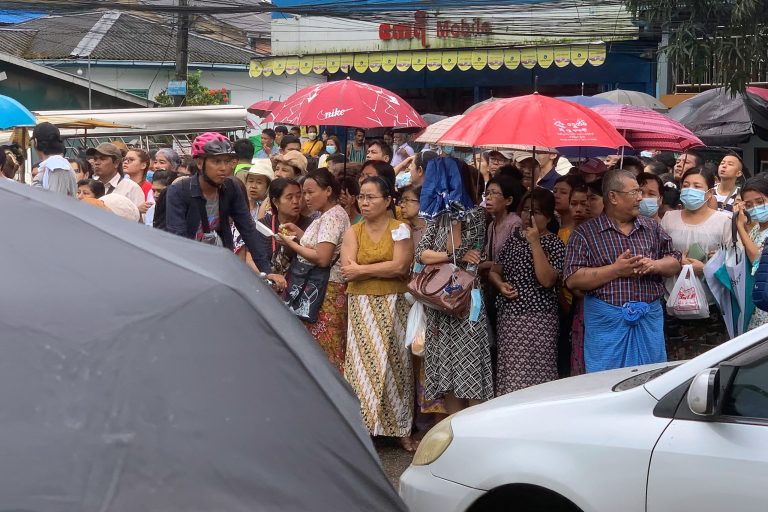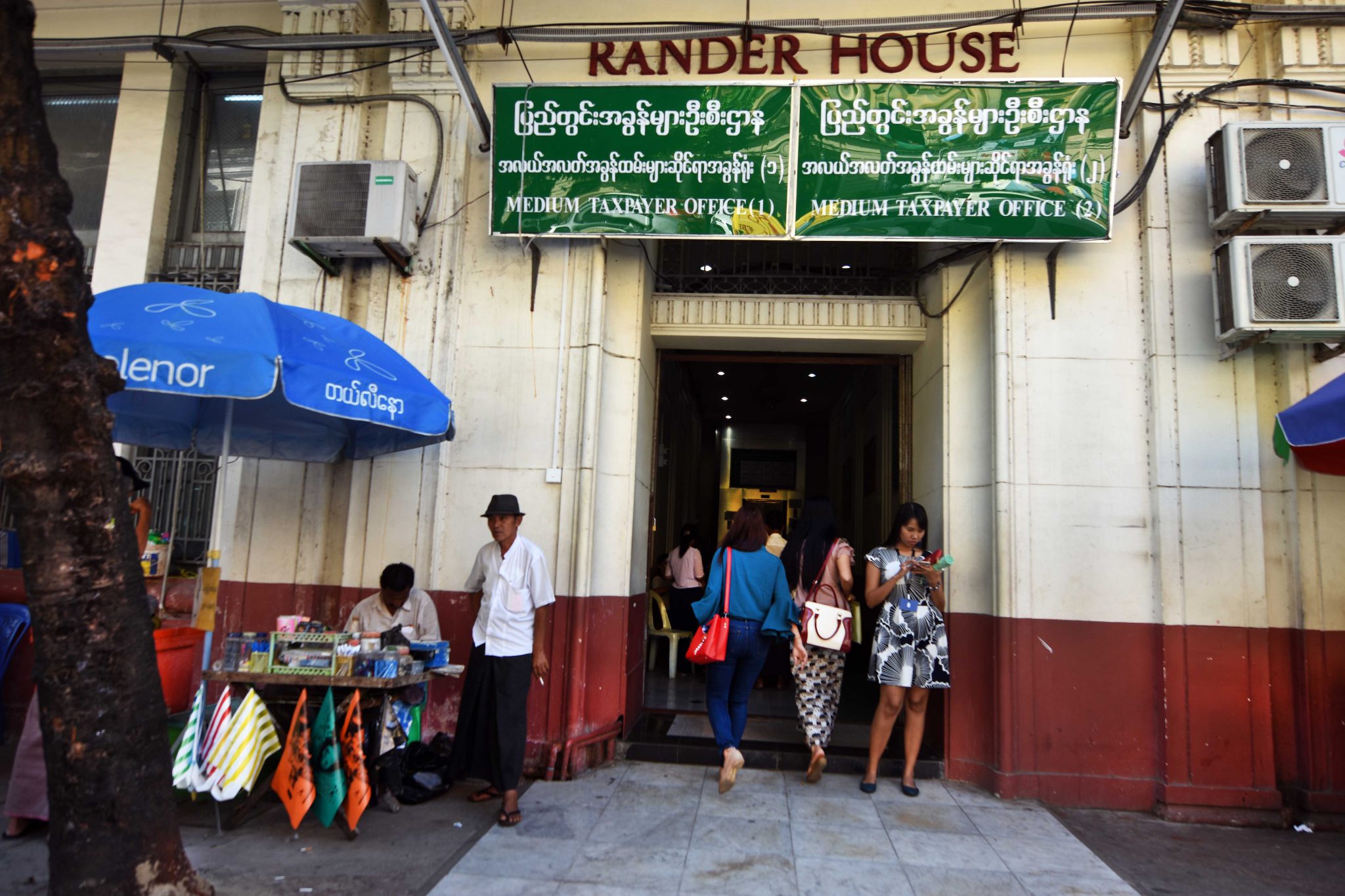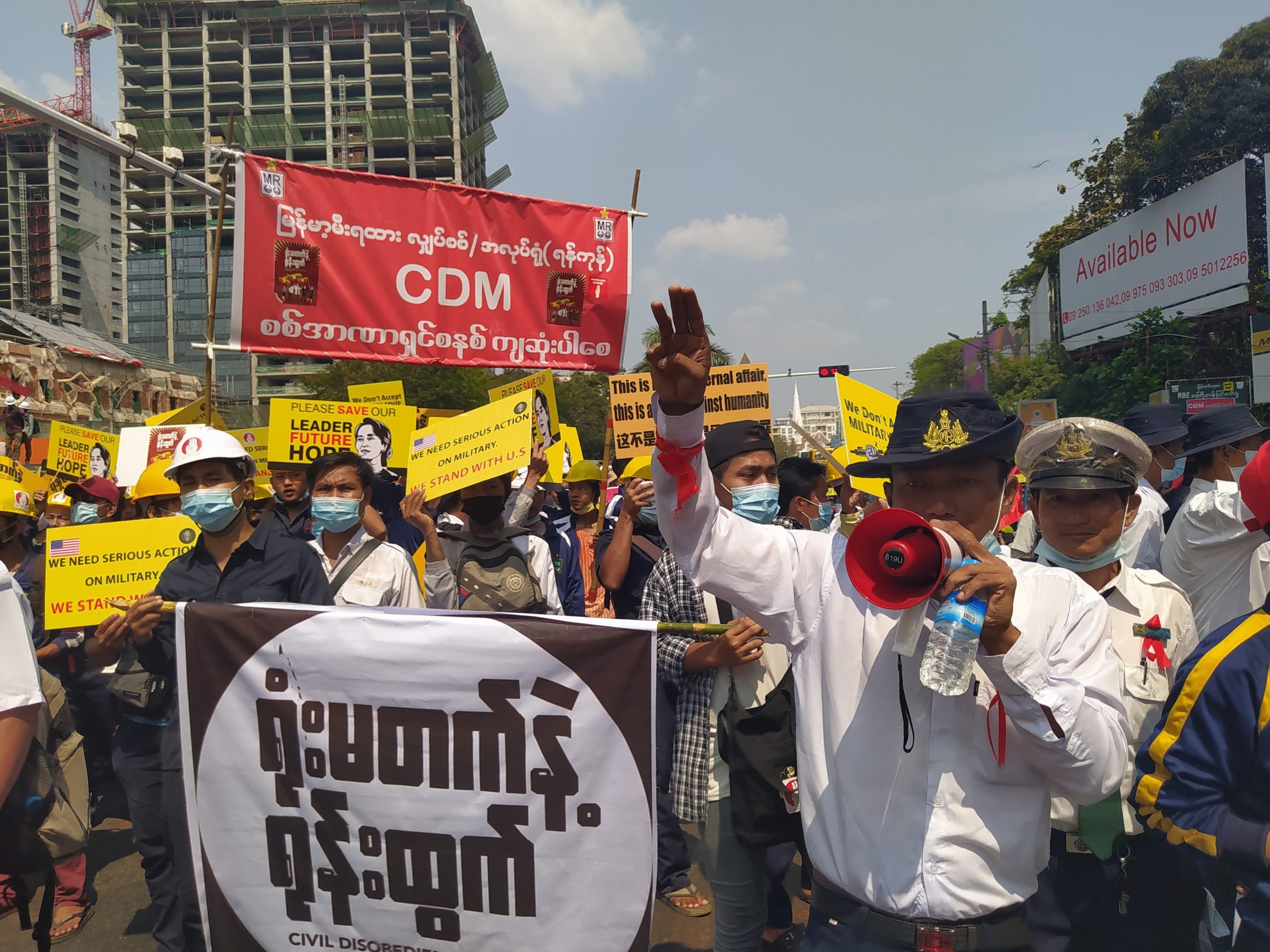By KYAW LIN HTOON | FRONTIER
YANGON — First Myanmar Investment, City Mart Holding Co Ltd and Serge Pun & Associates have topped the latest Pwint Thit Sa business transparency survey, which also revealed that nearly 40 percent of the 182 assessed companies have no corporate website.
The fourth Pwint Thit Sa survey, conducted by the Myanmar Centre for Responsible Business in partnership for the first time with Yever, a consultancy, was released on March 26.
This year’s report used different scoring from the previous three years and was based on the ASEAN Corporate Governance Scorecard, which is used in Malaysia, Thailand, the Philippines, Indonesia and Singapore.
The top companies for corporate disclosure, ranked in order, with their 2016 ranking, if any, in parenthesis, were: FMI (1), City Mart Holding (8), SPA (2), AYA Bank (6), Max Myanmar Group (3), Shwe Taung Group (11), Dagon Group (10), Grand Guardian Insurance, Myanmar Thilawa SEZ Holdings (18), and KBZ Group (7).
Support more independent journalism like this. Sign up to be a Frontier member.
Grand Guardian Insurance, a newcomer to the list, was ranked equal seventh with Dagon Group.
Although the top three companies have consistently ranked in the top 10 of previous surveys, they all made added efforts to enhance disclosure for the latest report, MCRB and Yever said in a news release.
Other companies that significantly improved their disclosure of corporate governance information compared to the previous report included Myanmar Awba (to 11th from 34th), Myanmar Citizens Bank (18th from 27th) and First Private Bank (21st from 50th).
Companies that slipped in the rankings included Parami Energy Group (ranked 14th, down from 9th), Smart Technical Services (15th, down from 4th), MPRL E&P (16th, down from 5th) and Asia World (22nd, down from 12th).
MRCB said 67 of the 182 surveyed companies, or 37 percent, had no corporate websites and even if they did, many of the websites had little or no data relating to survey criteria.
It said that of the companies with websites, 80 out of 116, or 69 percent, scored less than seven percent, which was the overall average score for the survey. The scores were calculated from an evaluation of 74 criteria.
“One striking statistic from this year’s report is that the average score for a company in which the World Bank’s International Finance Corporation invests is 54 percent, compared to an average of companies assessed at seven percent,” said Ms Vicky Bowman, director of MRCB.
“This is even greater transparency than the five listed companies on the Yangon Stock Exchange, which averaged 38 percent,” Bowman said.
“This demonstrates that good corporate governance is what attracts investors and partners for companies. It also shows that IFC investment and the guidance that accompanies it, make a real difference to how these companies run themselves,” she said.
Yever’s Mr Nicholas Delange praised the innovation and global best practice on the part of some of the leading companies when it comes to sustainability management and reporting.
“This takes us away from the donations culture towards a future in which sustainability and inclusion are embedded in the business’ core activity,” he said.
The news release said another striking finding was the poor disclosure record and absence of corporate governance by firms registered with the Directorate of Investment and Company Administration as “public” companies.
Many were yet to meet the reporting and disclosure requirements for such companies introduced in the 2015 Securities Exchange Rules. The average score for such companies was four percent, it said.






